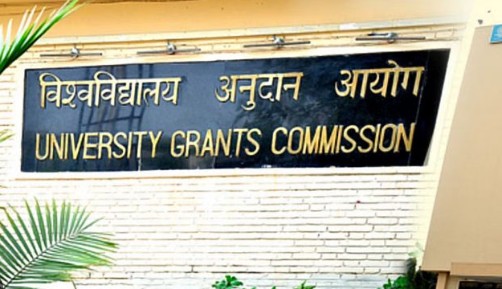
New Delhi: The University Grants Commission (UGC) has introduced new regulations aimed at streamlining the recognition and granting of equivalence for degrees earned from foreign educational institutions. This decision comes in response to the increasing number of Indian students returning from abroad with international qualifications, often encountering delays and uncertainty regarding the recognition of their degrees for admission to Indian institutions or for employment opportunities.
The new regulations, officially termed UGC (Recognition and Grant of Equivalence to Qualifications Obtained from Foreign Educational Institutions) Regulations, 2025, were notified on April 4. They establish a clear, technology-driven framework for assessing foreign qualifications from schools and higher education institutions.
However, these provisions for granting equivalence certificates do not extend to professional degrees in fields such as Medicine, Pharmacy, Nursing, Law, and Architecture, which are regulated by specific statutory councils in India. Such degrees will continue to be governed by the established norms and recognition procedures set by their respective regulatory bodies.
“This reform addresses a longstanding challenge and aligns with the National Education Policy 2020’s aim of making India a global education hub. To attract international students, Indian institutions must ensure fair and timely recognition of foreign degrees,” said UGC Chairman M. Jagadesh Kumar.
The equivalence process will be guided by various criteria, including the legitimacy of the foreign institution, the duration and level of the qualification, and its comparability with Indian programs. To eliminate the ad hoc nature of previous recognition practices, a Standing Committee on Equivalence has been established, which will evaluate institutions and qualifications for their validity and alignment with Indian educational standards.
The regulations also introduce an online portal where applicants can submit their equivalence requests and monitor their application status. The Standing Committee will convene periodically to make recommendations based on established benchmarks, including the standings of the foreign institution in national and international rankings.
Kumar remarked, “The Commission has designed a robust and fair process to ensure that deserving students are not left facing procedural ambiguities.” The standing committee’s assessments will focus on factors such as the minimum course duration and credit requirements, with a permissible variation of up to 10% in normalized credit load, as well as the curriculum structure that includes core, elective, cross-disciplinary, and lab courses. It will also consider contact hours, self-study, experiential learning components, and evaluation methods like thesis assessments and mandatory internships to establish equivalence in learning outcomes.
The UGC has specified conditions for the recognition of foreign degrees, stating that the foreign educational institution must be recognized under relevant laws in its home country, and the applicant must have completed the program of study with entry-level requirements comparable to those for corresponding programs in India.
Furthermore, the UGC clarified that qualifications obtained from unrecognized institutions or unaccredited programs, or those violating regulatory norms in India (e.g., offered through franchise arrangements), will not qualify for equivalence.
The UGC has detailed a structured online process for issuing equivalence certificates for foreign academic qualifications. Applicants must submit their requests via a dedicated portal, along with the required fee and any necessary authenticated English translations of their documents. Each application will undergo evaluation by a Standing Committee of education experts, who must provide their recommendations within ten working days. The Commission is then required to communicate its final decision within fifteen working days. If additional documentation is needed, applicants will receive an extension, with extended timelines for the final decision.
In cases of rejection, applicants can request a review within thirty working days by paying a specified fee. A separate Review Committee will re-evaluate the application and submit its recommendations within ten working days, after which the Commission will issue a final decision within fifteen working days. If approved, an equivalence certificate will be provided through the online portal.
